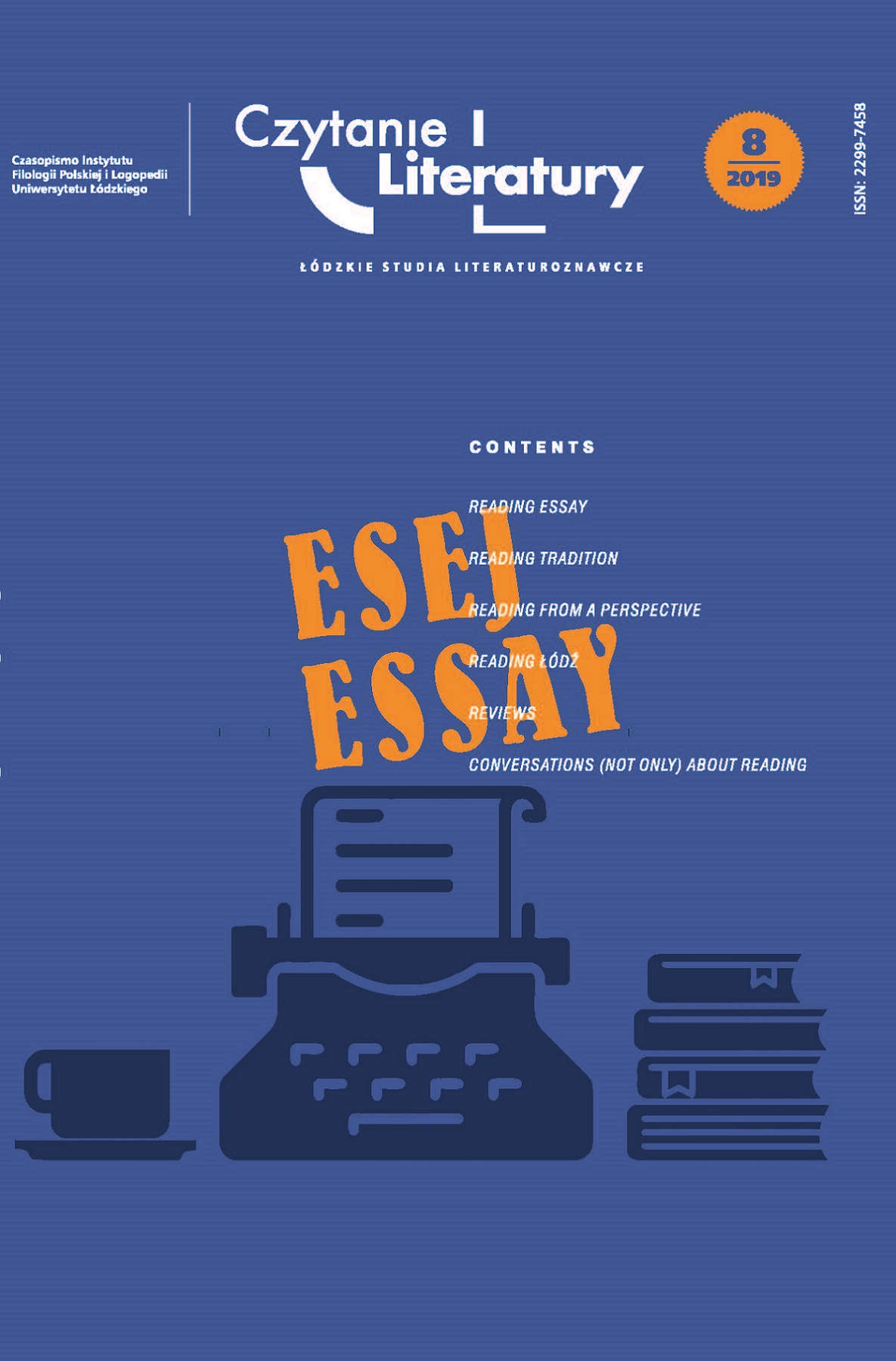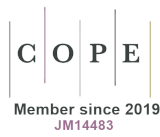“And to be malicious and belligerent / And not to lose feminine features”: Zuzanna Ginczanka’s Satirical World
DOI:
https://doi.org/10.18778/2299-7458.08.19Keywords:
Zuzanna Ginczanka, Polish poetry, Polish poetry written by women, 20th century, SkamanderAbstract
The paper reflects on how Zuzanna Ginczanka, dubbed ‘Tuwim in a dress’ by Adam Ważyk, was finding her way – both as a woman and, above, as a poet – in the literary, cabaret world of Julian Tuwim, Jan Lechoń, or Antoni Słonimski. The paper focuses on the satirical output of the poet, which is why the author chose two works – namely Pochwała snobów (In Praise of Snobs) and Damskie kłopoty (Feminine Trouble) – as the basis for the analysis.
Downloads
References
Araszkiewicz A., Wypowiadam wam moje życie. Melancholia Zuzanny Ginczanki, Warszawa 2001.
Google Scholar
Fac-Biedziuk A., ‘Rozgryźć słowo – jak migdał – w cierpki smak’. O poznaniu w poezji Zuzanny Ginczanki, [in:] O kobietach piszących w latach 1918-1939, eds. E. Graczyk, M. Graban-Pomirska, K. Cierzan, P. Biczkowska, Kraków 2011.
Google Scholar
Ginczanka Z., Wiersze zebrane, ed. I. Kiec, Sejny 2014.
Google Scholar
Głowiński M., O liryce i satyrze Zuzanny Ginczanki, “Twórczość” 1955, no. 8.
Google Scholar
Kiec I., Oskarżona. Zuzanna Ginczanka o poetach i poetkach, [in:] Ginczanka. Na stulecie Poetki, eds. K. Kuczyńska-Koschany, K. Szymańska, Kraków 2018.
Google Scholar
Kiec I., Zuzanna Ginczanka. Życie i twórczość, Poznań 1994.
Google Scholar
Kosterska A., Wybrane problemy recepcji poezji Zuzanny Ginczanki, [in:] Dwudziestolecie mniej znane. O kobietach piszących w latach 1918-1939, eds. E. Graczyk, M. Graban-Pomirska, K. Cierzan, P. Biczkowska, Kraków 2011.
Google Scholar
Kwiatkowska A., Między tradycją a nowoczesnością. O polskiej liryce kobiet w XX wieku, [in:] Polskie pisarstwo kobiet w wieku XX: procesy i gatunki, sytuacje i tematy, eds. E. Kraskowska, B. Kaniewska, Poznań 2015.
Google Scholar
Łobodowski J., Pamięci Sulamity, Toronto 1987.
Google Scholar
Polonsky A., Bal w operze. Żydowska apokalipsa według Juliana Tuwima, “Roczniki Humanistyczne” 2016, vol. LXIV, no. 1, p. 11.
Google Scholar
DOI: https://doi.org/10.18290/rh.2016.64.1-2
Satyra prawdę mówi 1918-1939, eds. Z. Mitzner, L. Pasternak, Warszawa 1963.
Google Scholar
Stauber M., Musisz tam wrócić. Historia przyjaźni Lusi Gelmont i Zuzanny Ginczanki, Warszawa 2018.
Google Scholar
Tuwim J., Bal w operze, Warszawa 1982.
Google Scholar
Downloads
Published
How to Cite
Issue
Section
License

This work is licensed under a Creative Commons Attribution-NonCommercial-NoDerivatives 4.0 International License.










